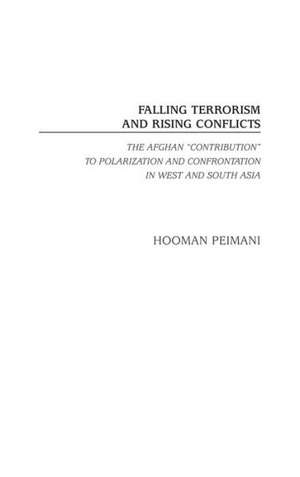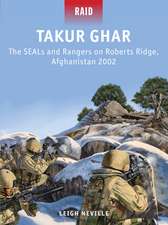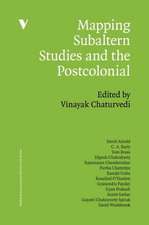Falling Terrorism and Rising Conflicts: The Afghan Contribution to Polarization and Confrontation in West and South Asia
Autor Hooman Peimanien Limba Engleză Hardback – 29 sep 2003 – vârsta până la 17 ani
Preț: 435.20 lei
Preț vechi: 602.75 lei
-28% Nou
Puncte Express: 653
Preț estimativ în valută:
83.29€ • 86.63$ • 68.76£
83.29€ • 86.63$ • 68.76£
Carte tipărită la comandă
Livrare economică 14-28 aprilie
Preluare comenzi: 021 569.72.76
Specificații
ISBN-13: 9780275978570
ISBN-10: 0275978575
Pagini: 160
Dimensiuni: 156 x 235 x 17 mm
Greutate: 0.38 kg
Ediția:New.
Editura: Bloomsbury Publishing
Colecția Praeger
Locul publicării:New York, United States
ISBN-10: 0275978575
Pagini: 160
Dimensiuni: 156 x 235 x 17 mm
Greutate: 0.38 kg
Ediția:New.
Editura: Bloomsbury Publishing
Colecția Praeger
Locul publicării:New York, United States
Notă biografică
HOOMAN PEIMANI is an independent consultant with international organizations in Geneva, Switzerland, and does research in international relations. His writing centers on the Persian Gulf, the Caucasus, Central Asia, and the Indian subcontinent. Apart from journal and newspaper articles, Dr. Peimani's recent publicaitons include Failed Transition, Bleak Future: War and Instability in Central Asia and the Caucasus (Praeger, 2002) and The Caspian Pipeline Dilemma: Political Games and Economic Losses (Praeger, 2001).
Cuprins
IntroductionAfghanistan and Regional and Non-Regional PowersAfghanistan in the Post-Taliban EraCreation of the Two Rival CampsConclusionBibliography














